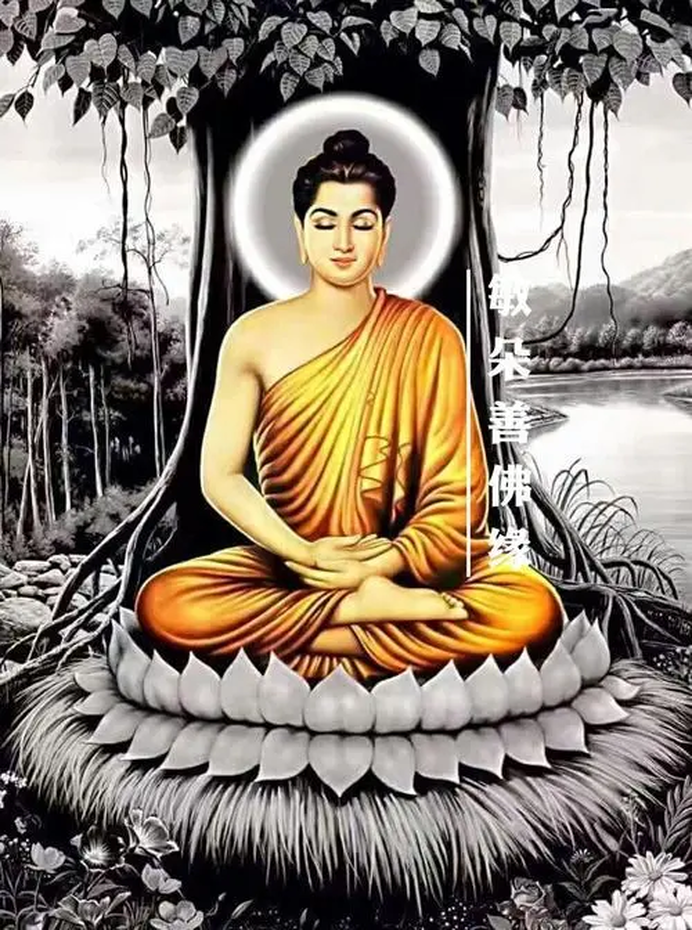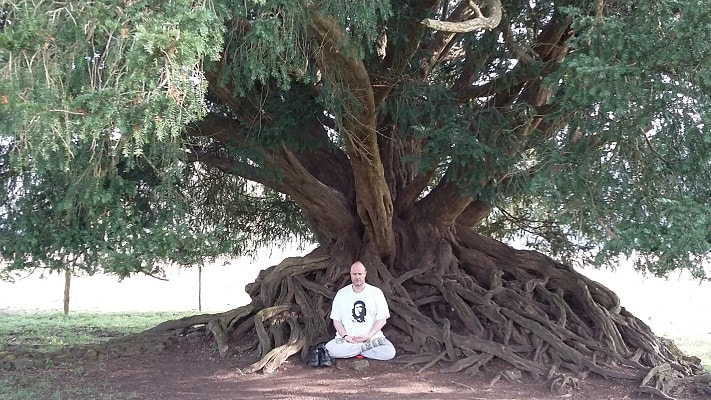He arrives at blissful perception and light perception: he arrives at perception of bliss and perception of lightness that are canascent with the supernatural-power consciousness whose object is the material body. The rest should be understood in the way already described. But here there is only the going of consciousness. (21)
21. “’There is only the going of consciousness’: there is only the going that is the same as that of the mind. But how does the body whose going [being that of matter] is slow, come to have the same going as the mind, which quickly passes? Its going is not the same in all respects, for in the case of converting the mind to conform with the body, the mind does not come to have the same going as the body in all aspects. For it is not that the mind then occurs with the moment of a material state, which passes slowly instead of passing with its own kind of moment, which is what establishes its individual essence. But rather the mind is called ‘converted to accord with the going of the body’ as long as it goes on occurring in a continuity that conforms with the body until the desired place is arrived at. This is because its passing occurs parallel with that of the body whose going is slow, owing to the resolution. ‘Let the mind be like this body.’ And likewise, it is while the body keeps occurring in such wise that its arrival at the desired place comes about in only a few quick passes of the mind instead of passing slowly, as in those who have not developed the roads to power – and this mode of occurrence is due to the possession of the perception of lightness, to say nothing of the resolve, ‘Let this body be like the mind,’ not because it arrives at the desired place in a single consciousness moment. And when taken thus the simile, ‘just as a strong man might stretch out his bent arm, or bend his outstretched arm’ (Vin 1 5) can be taken literally. And this must be accepted in this way without reserve, otherwise there is conflict with the Suttas, the Abhidhamma and the Commentary as well as contradiction of natural law (dhammata). Bhikkhus, I see no other one thing that is so quickly transformed as the mind’ (A 1 10) - here it is material states that are referred to by the word ‘other’ because they do not pass quickly. And in the Abhidhamma only matter is called pre-nascence condition and only consciousness post-nascence condition. And wherever states (dhamma) arise, there they dissolve. There is no transmigration of dhammas by force of the roads to power. But it is possible to affect alteration of the mode in which they are present (bhava)” (Vism-mht 397)
Visuddhimagga – The Path of Perfection – The Classic Manual of Buddhist Doctrine and Meditation – Part 2: Concentration (Samadhi) - Chapter XII – The Supernatural Powers - Translated from the Pali by Bhikkhu Nanamoli, BPS, (2010), Page 397


 RSS Feed
RSS Feed